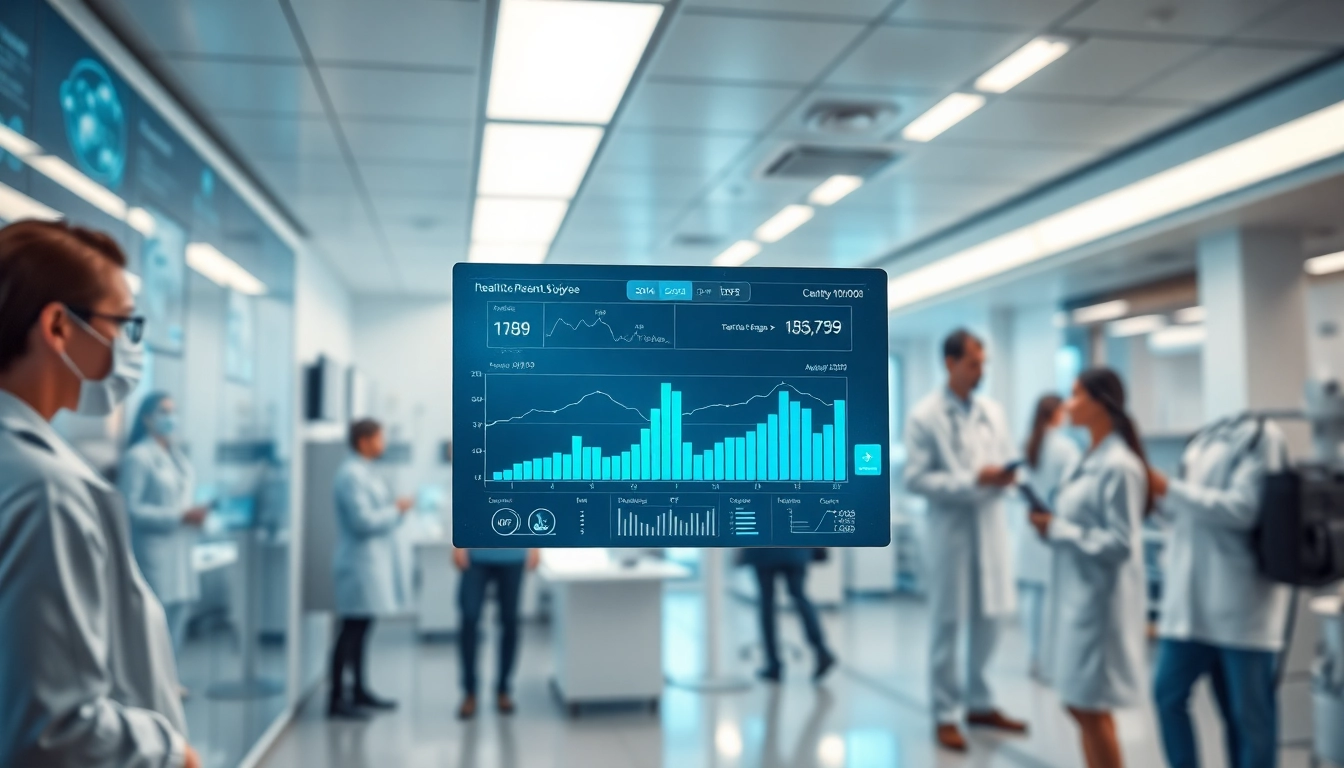
Unlocking the Future of Healthcare: Insights from https://www.informaticsview.com
Understanding Informatics
In the digital age, the intersection of information technology and healthcare has birthed a transformative discipline known as Informatics. This field encompasses the science of how data, information, and knowledge are utilized to enhance human health and the efficacy of healthcare services. The challenges faced in healthcare systems demand innovative solutions, and informatics stands at the forefront of this evolution.
What is Healthcare Informatics?
Healthcare informatics is an interdisciplinary field that merges healthcare, information science, and computer science. It is concerned with the collection, storage, retrieval, and use of healthcare information to foster better health outcomes. By leveraging technology, healthcare informatics aims to improve patient care, streamline operations, and enhance decision-making processes.
The Role of Informatics in Modern Society
Informatics plays a vital role not only in healthcare but also in multiple sectors, such as education, finance, and public health. With the growing reliance on data analytics and artificial intelligence, informatics professionals help organizations decipher vast amounts of data, promoting data-driven decision-making. Their work facilitates improvements in systems and processes that ultimately lead to better service delivery and enhanced user experiences.
Key Concepts in Informatics
At its core, informatics is about understanding and managing information in a way that can lead to new knowledge and improve practices. Key concepts include:
- Data Management: Organizing and maintaining data in a way that makes it accessible and usable.
- Information Systems: The combination of technology, people, and processes that manage and process information.
- Interoperability: The ability of different information systems to work together, sharing and interpreting shared data accurately.
- Health Information Exchange (HIE): The electronic sharing of health-related information between organizations.
Informatics and Its Application in Healthcare
As technology advances, healthcare informatics has increasingly become integral to patient care and operational efficiency. Its applications range from electronic health records (EHRs) to telemedicine, all of which foster better communication and enhance patient safety.
Transforming Patient Care
Through the implementation of healthcare informatics, patient care has undergone a significant transformation. EHR systems have replaced traditional paper records, allowing for instant access to patient information, which improves care coordination and reduces errors. Moreover, decision support systems help clinicians make informed choices, enhancing the quality of care delivered.
Information Technology’s Impact on Health Services
Information technology (IT) has revolutionized health services, enabling providers to deliver more effective and efficient care. Technologies such as telemedicine and mobile health applications empower patients by providing access to medical advice and consultations from the comfort of their homes, thus reducing barriers to care.
Case Studies of Successful Implementations
Several organizations have successfully integrated healthcare informatics to revamp their service delivery. For instance, the implementation of EHRs at Kaiser Permanente improved clinical outcomes by providing physicians with better access to patient health information. Similarly, the use of remote monitoring technology for chronic disease management has shown promising results in reducing hospital readmissions among heart failure patients.
Challenges in Healthcare Informatics
While the benefits of healthcare informatics are evident, the implementation of such systems does not come without challenges. Addressing these challenges is crucial to unlocking the full potential of informatics in healthcare.
Common Barriers to Implementation
One of the primary barriers to adopting healthcare informatics is resistance to change among healthcare professionals. Concerns regarding the usability of new systems and the effort required for training can impede successful implementation. Additionally, financial constraints can lead organizations to delay investments in necessary technologies.
Data Privacy and Security Concerns
Data privacy remains a significant concern in the era of digital health. The increased amount of personal health information stored electronically raises the stakes for potential data breaches, making stringent security protocols essential. Organizations must ensure compliance with regulations such as HIPAA to protect patient data.
Addressing Technical Limitations
Technical limitations, such as inadequate infrastructure or lack of interoperability among systems, can hinder the effective use of informatics. Investments in robust IT infrastructure and continuous training for healthcare staff are required to overcome these limitations and ensure that healthcare professionals can leverage informatics effectively.
Future Trends in Healthcare Informatics
As technology continues to advance, the landscape of healthcare informatics will evolve in ways that enhance its capabilities and applications. Understanding these future trends can help healthcare organizations prepare for upcoming changes.
The Integration of AI and Machine Learning
Artificial intelligence (AI) and machine learning (ML) represent the next frontier in healthcare informatics. Their ability to process and analyze large datasets in real-time can provide insights that improve patient outcomes and operational efficiency. AI-driven predictive analytics, for instance, can forecast patient admissions based on historical data.
Remote Patient Monitoring Technologies
Remote patient monitoring (RPM) technologies are set to enhance patient engagement and care delivery. By utilizing wearable devices, healthcare providers can track patients’ vital signs and health metrics outside traditional clinical settings, allowing for proactive management of chronic conditions.
Innovations on the Horizon
Emerging technologies such as blockchain are poised to revolutionize healthcare informatics by offering secure ways to share health data. Furthermore, the rise of telehealth solutions will likely continue to increase, providing access to care for populations in remote or underserved areas.
Getting Involved in Healthcare Informatics
The demand for professionals equipped with knowledge in healthcare informatics is on the rise as the field continues to expand. Those looking to enter this discipline can explore various pathways to become part of this dynamic sector.
Career Paths and Opportunities
Career opportunities in healthcare informatics span multiple roles, including health informaticians, data analysts, and clinical analysts. Professionals in this field can expect diverse work environments, ranging from hospitals and healthcare systems to technology firms and consulting agencies.
Educational Resources and Programs
A variety of educational programs exist to help individuals gain expertise in healthcare informatics. Universities offer degrees in health informatics, and certification programs are available through professional organizations, helping professionals stay relevant in this rapidly evolving field.
Networking and Professional Organizations
Joining professional organizations such as AMIA (American Medical Informatics Association) or HIMSS (Healthcare Information and Management Systems Society) can provide invaluable networking opportunities. Engaging with experts and participating in conferences can enhance knowledge and career pathways.



